
Muse & Mastery
Hosted by Aliya Cheyanne, Muse & Mastery is a digital sanctuary for creative thinkers, makers, and seekers. Each episode explores how we can live, create, and evolve in alignment with our purpose.
Muse & Mastery
Archiving Black Legacies ft. The Luster Company Founder, Dominique Luster | Ep. 84
"People know how they want to be remembered, and they have the right to be forgotten." - Dominique Luster
What happens to our stories when we're gone? Who decides what parts of history are preserved and remembered? Dominique Luster, founder of The Luster Company and an archivist for the people tackles these profound questions while sharing her mission to preserve Black history and community stories for future generations.
"History is written by the person who wrote it down," Dominique explains, highlighting why it's essential for communities to document their own narratives rather than leaving that responsibility to others who may misrepresent or completely overlook their stories. What sets Dominique's approach apart is her profound respect for community agency. Rather than imposing her archival vision, she empowers communities to determine how they want to be remembered. "People know how they want to be remembered," she shares, "and people also have the right to be forgotten." This philosophy places ownership of historical narratives firmly in the hands of those who lived them.
Beyond the technical aspects of archiving, Dominique shares a deeply personal connection to her work. Inspired by her fifth great-grandmother Charity, born into slavery in Kentucky in 1824, she reflects on the unbroken line of resilient women who "figured it out" through unimaginable circumstances so that future generations could exist. Listen now to discover how preserving the past creates a powerful bridge to our collective future.
More from Dominique & The Luster Company:
- Find @thelustercompany on LinkedIn, Instagram and at www.thelustercompany.com.
- Follow Dominique on Instagram @msdominiqueluster
Watch this episode on YouTube!
Theme Music:
She No Dull Beat by Nana Kwabena
Festivities in Belize by RAGE Productions
Enjoy the episode?
- Share it with friends!
- Send a voice note or text!
- Rate & review the podcast!
Follow @museandmasterypod on your favorite SM platforms!
Watch full interviews here on YouTube!
Join me over on Substack!
Check out my favorite brands and snag a discount!
Grab a guided journal here!
Are you a creative, solopreneur or entrepreneur who’d like to be featured on Muse & Mastery? Let me know here!
Hosted by Buzzsprout. See the Buzzsprout - Privacy Policy here.
Hi everyone, welcome back to the show. I'm your host, aaliyah Cheyenne, and I'm so excited today to be joined by Dominique Lester. Hi, dominique. Hi, welcome to the show. I'm so excited to have you.
Dominique Luster:Thank you so much for having me. I'm excited to be here this is going to be fun.
Aliya Cheyanne:It is. We already got vibes here. We had a little technical difficulty, but we're here now and we're so excited. So before we jump into the conversation, I would love to just ask you a little bit more about who you are in the world today and how you'd like to be known.
Dominique Luster:I am a woman and a Black woman and a Black woman archivist I think those are usually how I see myself. I'm also a daughter and a sister and a cousin and a friend and somebody's auntie A lot of things and I think I'd like to be remembered in this world as someone who truly cared about how people are remembered in this world.
Aliya Cheyanne:Yeah, that's really beautiful. I resonate with so many of those things as a fellow Black woman and a sister, but I love this idea of legacy and remembering and storytelling and archiving and history. So thank you so much for being here to share more about the powerful work that you're doing. No, thank you for the invitation. Yes, this is awesome. So I want to jump into some questions for you, because I know my audience is going to want to know everything. Let's go Tell us a little bit more about the Lester Company. So you describe yourself as an archivist for the people, which I think is really really cool. You know, what does that mean to you and how did you kind of get your start in doing that?
Dominique Luster:Yeah, so an archivist is someone who works to preserve the historic documents and artifacts, and sometimes objects, of people, places, communities, governments, organizations, businesses, what have you. We can work in a variety of different areas and capacities. I particularly work in what I like to call the greater diasporic community, so that can include church records, family records, family Bibles, cookbooks, uplifting Black history, black stories, black communities, and making sure that those stories get told and preserved in any kind of various ways, whether that's with families, with communities, whomever. So it's been fun. I've been. The Lester Company has been around kind of doing this work for a few years now, since 2021, juneteenth of 2021, to be specific. I know I was like if there was one thing I was going to time in this world, it was going to be the founding of this company, but we've been around since Juneteenth 2021. But I've actually been an archivist probably since 13, 2014, something like that. So not too too long, definitely.
Dominique Luster:Still, I would consider myself like a younger professional, but I've been told recently that I can no longer sit at the young kids table, so that was a little hard for me to hear, but it was. It was hard. I was like, what do you mean? Like I'm a young professional. And they were like, no, you're not. When does one? You look it, you look it. It's like when is one no longer a young professional? And they were like, no, you're not. When does one? You look it, it's like when is one no longer a young professional? Is there a mark in which, after that point, you're not? I don't know, but I was a little upset at that conference because they wouldn't let me be a young professional anymore. I was like what do you mean? I'm not a young professional. What do you mean? I just graduated five minutes ago, but apparently that was a decade ago.
Dominique Luster:And they were like you gotta go Like really. But it was interesting. I was at a conference giving a talk and I had mentioned something. There's this old piece of software I guess it's old, apparently piece of software in the archives field, and I mentioned it during my talk and I remember someone specifically in the audience being like that officially makes you old, because we don't even know what software that is. And I was like rude and we're like yeah, do they? Is that what y'all used to use back in the day? I was like we used this software five years ago.
Aliya Cheyanne:Oh my goodness. That's how fast things move and progress. I'm very curious. I'm wondering is AI having an impact on your field right now? Or like what does that kind of look like for you now?
Dominique Luster:Absolutely, I would say, contrary to popular belief, ai and history kind of are doing lots of things, coinciding a lot right now. I think there's kind of two, maybe two types of technology that archives and history and people and civilizations are almost always contending with. But there's big waves of technological advances. Right now we are dealing with AI, but previously we were dealing with computers and machine-readable formats of things, but before that we are dealing with the printing press. The printing press is a piece of technology that would have been considered innovative in its time. The wheel or the motor vehicle would have been considered innovative technology at its time.
Dominique Luster:So I think people in history are always contending with whatever is the newest version of some technological advance. Right now we're just dealing with AI, or that seems to be the one that we're contending with right now, and it impacts the archives field specifically in a couple of ways. I think there's concerns around, you know, will AI replace jobs and whatnot? I mean, I think I personally have never seen a computer process, an archival box full of things. But there are other ways in which technology helps us do our jobs a little bit faster and easier. For example, communities of all kinds and shapes create things. They create stories and photo journals and photo albums and Bibles and cookbooks and whatnot.
Dominique Luster:That stuff adds up and you want to make sure that you really capture people's names and dates and stories, and you know the little nuanced parts that grandma used to put in the mac and cheese that she didn't tell nobody about. But if you actually got her recipe cards you'd see on the back she was like sprinkle of this dash of that. That stuff has to get preserved, and there's only so much time and capacity that any one person has or any one archivist has, and so technology can help us do that a little bit faster. But other than that, these robots can't process a box.
Aliya Cheyanne:Yeah, yeah, yeah, it's very interesting to hear how it's impacting your field in particular, but it's important too to remember that so many things require human touch and that AI's job is to be a companion of sorts, in the sense that it could help us do our jobs a little bit faster and easier, but it's not meant to replace us. So it's very interesting to learn about how it's impacting your field, but, in the spirit of using that example of grandma's recipe and the nuance and things like that, I would, and you even using the example of, like family Bibles, like that's a big thing for some people, like people have Bibles from generations ago written with family members' names, so like, ooh, that's so powerful. But, especially in this time and in this era, right now, why do you think your work is so urgent and vital, especially as it pertains to, like, our communities, black communities, other communities of color?
Dominique Luster:I think that humans, at least our modern generations, we are at a really particular pinch point in time when it comes to like human civilization development, and I think that our elders, we are coming out of it. We're coming into a season where we live longer as humans. We live a little bit longer than we may have in the past. However, time is not as long or as short, but it really is not as long as we think it is, and so we might assume or think that certain ideas, events or experiences were a very long time ago, like the desegregation of schools or the March on Washington or the Jim Crow South. We might presume that a lot of these things were a really long time ago. They actually quite weren't. Probably find a community elder in your local church or at the library who actively remembers who watched their parents on television at the March on Washington, something like that. This is absolutely within current living generations' mind frame, current living generations mind frame.
Dominique Luster:I think that capturing and preserving and archiving these experiences now is more critical, or is exceptionally critical in all communities, but in Black communities, because we're also because in this, tied to technology, we're in a place where we create a lot of things very fast. We create photographs by the thousands. I don't know about you, but in my phone there's probably 10,000 photos in my little photo thing on my phone Photo library, apple I don't know what it was called Previously, back in the day or in previous generations, we had to be more selective, right Like if you took photographs of an event. There was like a physical camera and you were on film and you developed that film and that photo maybe went into the newspaper, like there's a lot of touch points around that object, and so you have to be very selective and very meticulous about what you include and what you don't. Nowadays we will go to the family cookout and take 85 million photos of everybody's cousin and mama now and who knows whatever happens to them.
Dominique Luster:I think, to get back to the question, is that we create a lot of things and life moves very fast now, and so we have the capacity to lose or forget the connection to historic objects, to historic events, to historic memories and moments that helped, shaped us as a community. Because our memory gets really short, because our attention span gets really short, because we create a lot of things very fast, we're not as meticulous, we're not as intentional when we create things, and so we can lose the meaning of desegregated schools, things, and so we can lose the meaning of desegregated schools. We could lose the importance of the March in Washington or things like those major events, bus boycotts. We can lose the real weight of these events without capturing them very carefully now, and our elders who were there are getting older.
Dominique Luster:They love them, but they are getting older and they God willing, you know at some point they won't be with us much more, and so we have to be able to capture those experiences while we can, because once we lose that connectivity, it's very difficult to get it back.
Aliya Cheyanne:Yeah, that's so powerful and that's so important. I think we're especially in a time where some would hope that we do lose that connectivity and that we do lose that ability to like, recall and connect with the past how it relates to the present, and I love the way you speak about it just with so much care and intention and passion. I think that's really beautiful and important. So thank you for what you're doing. It's so good and so cool.
Dominique Luster:You know it's interesting. I heard this the other day, but I've I've now said it a few times, so I think I'm going to try and claim it. Somebody else does. But you know, I heard this saying the other day where if you want what is the phrase? If you want to hide something from someone, put it in a book. I heard that and I said, oh, that's interesting. If you want to hide something from someone, put it in a book. And I thought to myself but if you want to hide something from a whole community or a whole civilization, put it in the archive. Ain't nobody going to look there. If you want to hide something from somebody, put it in a book. If you want to hide something from many people, put it in the archive.
Aliya Cheyanne:Yeah, wow, I've definitely heard the book one before. I really liked that spin on the archive, one that was so interesting. It also makes me think about forms of digital archiving. I call this podcast Digital Archive. It's using my voice and your voice and the voices of other people to tell stories that are really important.
Aliya Cheyanne:And I also think about the way that people practice digital archiving and the way that, you know, we talk about taking pictures at the cookout or, you know, having our photo libraries or even posting things on Instagram. Like we're in the era of the Sinners movie and there are trends popping up on platforms like TikTok where people are really showing pictures of their family history to like the soundtrack of that movie. Like I'm seeing people show pictures of their parents and their grandparents in the deep south who were sharecroppers or who had black and white photos or all kinds of stuff, and it's opening up so much conversation in a way that I think is really really beautiful and powerful. So I would love to just kind of talk about the ways we physically archive and the way we digitally archive and kind of like what's the difference or like the defining difference for you, and how we kind of document a moment, whether that's digitally or physically, and what it means to truly like archive, a legacy.
Dominique Luster:I think you've I mean honestly you already described it. I just want to just like piggyback on what you've already said to be honest.
Dominique Luster:I mean. So you've already kind of laid it out, so I'm really just going to kind of tag team here. You know, walk alongside what you said. But you're absolutely right, we have digital archiving, we have physical archiving, but before that, what you kind of like just signed in the sky, was this idea that history is this very curated thing, like it's something that is specifically chosen things.
Dominique Luster:So you know, contrary to popular belief, not everything that is created is saved, even in a digital environment. Not everything that is created is saved, and this is maybe a little more can be saved in a digital environment. But at what costs? Right, like there are costs, space costs, environmental costs associated with that, and then physical objects. We can't save absolutely everything. There are billions of humans and have been billions of humans. If we saved absolutely everything that every single human created, we'd run out of space incredibly quick.
Dominique Luster:And so what gets into an archive and what's not included in the archive is selected. And that selection is a process that archivists, historians and curators kind of go through to choose or select what goes into an archive and becomes a part of that historic storytelling, history writing process, and what goes in can be very powerful, but also what's chosen not to go in an archive can also be very powerful, and the gaps or silences that that creates can be sometimes a little louder than what's included. Just depends on what you're looking for and how you're looking. But how we do that physically, honestly, history just benefits, or history tends to prioritize or tends to lean towards the person or the people or the company that wrote it down. So there's that phrase that I don't know like history is written by the victor. I think that's the phrase that is semi-true, semi-not true. History is written by the person who wrote it down. That's actually pretty much a little bit, a lot closer to the truth. And if the victor is the one, is the story that's left behind. It's purely because that's the story that was written down and not destroyed. Like a big part of the victor is destroying the other person's story so that they can't prove it against you.
Dominique Luster:And in the physical environment, how we preserve our own things is simply by writing it down, because if you don't tell your own story, somebody else will or may not and you might not like what they have to say. They may not record your story or document your life, your family, in the way that is honoring and uplifting to you, or in the way that you would describe it. Some families and companies, communities, organizations, nonprofits, for-profits, what have you? Have nuances of how they talk about themselves, how they talk about their story. It's a culture of how they wish to be remembered. And if you don't write it down, did it really exist? I mean, you can't prove it. That's where that history of the history is written by. The Victor thing comes from.
Dominique Luster:In the digital environment, the digital environment gets a little bit more tricky. In the physical environment, we can talk all about like save grandma's photos, right, like that's really what it is, and write the names on the back of it. In the digital environment, sending archive on your email does not mean you archive your email in the grander scheme of archiving the world. I just want to say that, for the sake of the recording, yes, hitting the archive button in your email is a good idea. It just doesn't do what you think it does. It does not preserve your records forever. It really doesn't. Digital preservation is an incredibly complex, bajillion-step process that includes anything from preservation of physical objects to the long-term preservation of born digital objects. It gets really complicated. Talk to an archivist. We'd be happy to help you.
Aliya Cheyanne:Yeah, yeah, I love that. I thank you so much for taking the time to just explain that a little bit further and share your thoughts and really build on what we were talking about. Yeah, I think that's an important sort of caveat to explain too about digital archiving, because you see so many things about, like, how to save things and archive things, like even going into your archive on Instagram and I'm just like, okay, but like there are, it's not literally the same exact thing, like there's a whole. No, it's not to kind of create a true archive. And if you do want to do that for yourself, for your legacy, for your family, for your community, like talk to someone who is an expert in this area and who can support you and guide you in that process.
Dominique Luster:Because there are absolutely. There are ways for sure. I mean, individual families can archive their own things A hundred percent. They absolutely can. It's the thing that I try to encourage people to do is just be mindful of who owns the platform that you're using. Yeah, do you? Yeah, probably not, and it's not even like a pro one platform or against another. It's just purely like do you?
Dominique Luster:If you are, if you say you've taken photographs of your family photo album and you took digital photographs of them and you uploaded them to the cloud to be preserved, that is an amazing step and please go forth and do that as a great, great first step. Yeah, or your family recipes, if you want to take photographs of them and upload them to the cloud, I think that's a really brilliant first step. But just know that that's a first step. Always just be mindful of who owns said thing. And if they disappeared one day, would your stuff disappear with them? Is it a subscription that if that company went under one day, that your stuff is gone or could be sold or just disappeared? Or if there was an environmental issue one day and all the servers went off, like you know? Just be mindful of where your stuff is no pros or cons in either direction. Just be mindful of who owns what you're putting where and what protections do you have in case something should happen to that other player?
Aliya Cheyanne:Yeah, Very true, very true. That's a really good point. I want to get back to what we were talking about. I want to build on the fact that you said that families can absolutely archive things on their own, like so many have been generations. That's why you have people today who have family Bibles from like 1908 and all kinds of stuff like that.
Aliya Cheyanne:But I do think that the work you're doing intersects so beautifully with just storytelling and memory and preserving legacy and truth and all those things. I think that's so powerful and something I love to talk about a lot on the show is just creativity, and I think there's a lot of creativity that comes into play when you're connecting with communities and families and preserving their stories, and it really is just sacred and special work. So I would love to know if you find any opportunity for creativity in your work, how you're able to just come up with new ways to do things that may be innovative, that might deviate from tradition in your field, or how you've had to adapt as times have changed in preserving legacy and storytelling. So I would love to talk a little bit more about you serving legacy and storytelling.
Dominique Luster:So I would love to talk a little bit more about you. Honestly, I think the one thing that I have tried that works pretty much all the time is just letting the community decide what they want to do and then me finding creative ways to support whatever it is that they want. So I don't necessarily and maybe I should, maybe I shouldn't, but I don't necessarily put the onus or the burden of coming up with that creative outlet or that innovative or imaginative top layer. Let's call it that, that top layer of what you as a family member might actually interact with. Most communities know what they want. They just don't necessarily know how to make it happen because they are not archivists, like, that's not their job, it's not, it's not. Are not archivists? That's not their job, they shouldn't have to. We are the librarians, the archivists, the genealogists, the public historians, what have you? That's our job to know how to make their dreams come true. And so I think the one thing that I try to do is just to allow the community to whatever they want to do, whatever you want. I will let you know if whatever you want to do may not be as possible in our current technological world, but we will also then try and figure it out.
Dominique Luster:Anyway, I think my job is to figure out the how and to figure out the what is for the community to decide. They know how they want to be remembered and if they want an oral history repository that we keep on a cloud, sure, great, that's fine. If that's what you want and that's how you wish to be remembered, that's fine, we can do that. I'll help you figure out how that works best so that it's in your best interest. If you want a physical archive, if you want an art archive, if you want a community-driven archive by volunteers, I think all of those options are great.
Dominique Luster:It's whatever drives the belief and the why for them. I mean, I wouldn't want to say my opinions on it are irrelevant, but I kind of actually do feel like my feelings on it are irrelevant. It's purely based on a belief that I believe in Black people and Black storytelling and I also have a fundamental belief that they know what they want and what they're doing, or at least they know what they want and how they want it to look. They know what their story is. It's not for me to know. My job is to help them build whatever infrastructure that they need to get whatever they want done.
Aliya Cheyanne:Yeah, yeah, that makes sense, it does, and I think there's importance in doing it that way as well. It does give you the opportunity in the room to play and be creative when necessary, to figure out how to accomplish certain things, but it also just honors the fact that families, communities, usually know what they want and what they like to see, and you're supporting them in that process. So I think there's a lot of power, absolutely.
Dominique Luster:Yeah, it's just people know how they want to be remembered and I also believe that people have the right to be forgotten in and out of how they choose and whatever works best or sees fit for them and their legacy building. And if they want their archive at an institution like a university or something, that's fine, we can do that. If you want it at a museum okay, cool, let's do that. If you want to keep it in your community cool, let's do that. If you want to keep it in your community cool, let's do that. It's completely up to them.
Aliya Cheyanne:Yeah, that's so powerful. People know how they want to be remembered. People also have the right to be forgotten. Wow, I got that. Wow, I got a little chill. This is really powerful. Makes me think about things. So, yeah, beautiful.
Dominique Luster:Thank you for sharing with us Good.
Aliya Cheyanne:All right, it's no fun, I'm joking, it's just so good. But yeah, that sentiment just stuck with me a little bit. So I also love to talk about just purpose and alignment on this show. And you are in many ways, at least it seems to me, you are very much walking in purpose, like what you're passionate about and what feels very aligned for you, at least in this season, in this era of your life. And I get a sense of the why already that you do the work that you do. You've talked about it so just, powerfully and so beautifully so far. But I would also love to know how you kind of take care of yourself during this process, especially as some stories might be heavier or more emotional than others, as you're archiving those stories. And we talk a lot about community, but I would love to know what self-care or community care looks like for you while you're holding this stories, while you're doing this work, while you're remembering your why, all of those things.
Dominique Luster:That's a great question and I will admit that I'm not always the best at it. But I also I think that I think that there's kind of two ways or two types of that caring. One can be episodic, I think, where you might work and grind for a while and then have period of intense care. Maybe that's a trip, or you work for a year and then maybe you have that kind of big burst of self-care. And then I think the second type is more everyday, like that small nuance, everyday care where it's like okay, this is the practice that I do. Five minutes of meditation every morning, that kind of helps me level set. So I think there's two types. There's probably a bajillion more, but these are the two that kind of come to my mind. I am probably the one person that does both.
Dominique Luster:I'm a person of routine and person of habit. I am the kind of person that loves a color-coded spreadsheet. I just am. I love organization, I love a file. I just I love it. I am the person who would move. I remember when I moved once I like put color-coded stickers like red, yellow, green stickers on all the boxes throughout my house which, like green, means this is good to go put it on the truck. Yellow means like this is almost okay, just triple check. Red means don't touch it. Like I am that person. There's a spreadsheet on the door as you enter the room. I mean, like I love, I am a librarian archivist.
Dominique Luster:I love, I love metadata. I love it, it's my thing anyway, but for self-care, because I think metadata can come, or that level of organization can come, across as the opposite of self-care, but I actually find it deeply relaxing. I find it deeply relaxing. But I am also a person of routine. I like habit, I like routine, I like doing the same thing every morning. My mornings are very boring and they're very routine, the same thing. I even eat the same oatmeal every morning. That's what matters. It helps. I mean, I've been very surprised at how much it helps. I have to travel a lot with the company because archives are all over the country and I try my best, I even sit. It's funny. I even try to sit in the same seat on the plane. I try my best, I even sit. It's funny. I even try to sit in the same seat on the plane. I try to stay in the same hotel, like I need. I need my routine.
Dominique Luster:You need structure, you need your I get it A lot of structure and routine it really helps because I think otherwise life can feel very overwhelming and chaotic and anxiety inducing, and I think routine not necessarily. I've heard recently there's a difference between peace and quiet. Sometimes we are here thinking that we're protecting our peace, when really we're just like defending quiet. Yeah yeah, and I think routine can be a little bit of a balance between that for me and just keeping things peaceful and quiet for at least my small little ecosystem of the world. However, I also do love a plane ticket because you could find me on somebody's beach. That does not mean I don't also episodically go to somebody's island yes, to somebody's beach and like I will disconnect for weeks yeah yeah, it is nice.
Dominique Luster:I will disconnect to the best of my ability three or four weeks a year and just be out good good for you yeah, I try both, I try both yes, a thousand percent resonate with you on so many things.
Aliya Cheyanne:I also like some structure, some routine. I also like to dip on a bit. You know like get away me in my house.
Dominique Luster:Yeah, we have multiple boxes and packs of my breakfast, because I can't handle it this works for me like it does.
Aliya Cheyanne:I was listening to another show, like yesterday I think, and literally the guest was, like you know, said to the host I heard on your show that you said that you can eat the same thing every day and she was was like that's just not me. I need variety. I need and I was in my head I was like that sounds overwhelming, like I'm sorry I don't have.
Dominique Luster:I don't even have what I call. I have this thing that I call spoon theory. I stole it from a TV show a long time ago, but it's called spoon theory and it's basically like there are people who wake up with all the spoons that they're going to have in a given day and they hand them out with every interaction and every decision that they make throughout the day, and once they run out of spoons, they're out of spoons until the next day. There are other people who receive spoons from every interaction that they have with other people. They receive that energy. I am not. I give up spoons with every single interaction that I have and every single decision that I have. So if I'm making decisions about breakfast no, if I'm making decisions about breakfast I can guarantee you three important emails did not get sent that day. Oh my gosh.
Aliya Cheyanne:I feel you a thousand percent. I get it. I get it. I get it, amy, I feel you on that, okay. So I only have a little bit of time with you left and I got a couple more questions, so I just want to talk a little bit more. So I know we talked about how you've been archiving since 2013, but you started the Luster Company Juneteenth 2021. And that's amazing. I don't know if I caught what made you want to start your own company, as opposed to, you know, doing it in the capacity that you were doing it before and then switching over to, like, starting your own company to do it.
Aliya Cheyanne:Can you tell me a little bit about that pivot.
Dominique Luster:Absolutely so. What's interesting is I've been in a journey of talking about my experience going into entrepreneurship for a while. So actually we just launched a book that I contributed a chapter in called Brave Women at Work Lessons and Letting Go, and in the chapter I actually talk about that shift into going into entrepreneurship and it was pure like what's the words that we're supposed to use nowadays? The world shut down and I was like you know there's certain words that you know we won't date the podcast, but let's just say, a few years ago, the whole world shut down.
Aliya Cheyanne:The pandemic impacted so many people, so many people.
Dominique Luster:And I was incredibly, incredibly fortunate. I had work that I really loved as an archivist, working in a Black community and working around an amazing collection that I really, really loved. And I was very, I'm thrilled. And this, you know, global situation occurs, that shuts down the whole thing, and I remember we were sent home for two weeks. You remember that, like, oh yeah, we'll be back in two weeks, two years later, yeah, yeah, like that was crazy. But at any rate, in that time I remember and I talk about it a bit in the book chapter that you know I had been kind of, my partner had actually kind of sprinkled the idea of, hey, you love this thing, you love working with communities, you love what you're doing. And you know, would you ever consider doing your own thing? And I was like, absolutely not, I ain't got, I won't have health insurance, like you know how expensive it is to retire Right, like what do you mean? Why would I give up my retirement plan? Why would I do that? That doesn't even make sense Because I, I um remember very distinctly I'm from Kentucky and my family in Kentucky isn't necessarily any. I mean, we're a very typical Black family from Kentucky and so we're not. We don't come from a ton of money by any means, and so to have a college degree and a really good job and a stable you know, stable housing, environments and food on your table and your bills were paid, was a really big deal, not necessarily because it was a lot, but because it may have been more than what other people might have. And so I had finally gotten to a place of real stability in my life and in my work, and so the idea of giving that up to go and do independent work I was like that makes no sense. Don't even come to me with that. That is that Nope.
Dominique Luster:But during the pandemic, there's just a couple of things that happened during the pandemic that sparked me to think about what I really wanted, and I think the thing that I really wanted was the freedom of time and the freedom of more capacity. I felt like I had a certain skills as an archivist to help people do things, and I could work more directly and make a bigger impact by teaching people how to archive their own stuff and by working directly with communities and by working with Miss Mary Sue on her front porch and going through her photos so we can get them out of her attic and out of these plastic bags, like I just really wanted to do something. And the pandemic and just life and other life events that were happening around the same time really sparked in me like well, what are you going to do? What are you actually going to do? Really, what are you actually going to do?
Dominique Luster:And so I kind of sidestepped into entrepreneurship. I was definitely not the person that like full leaps. I wasn't just like I'm throwing away my job, one day I'm gonna start my own company. No, like there were stages and chances and I went go fully independent and have to go back to employment and go back into full independency and go back, like we kind of bounced it back and forth until it finally landed. Yeah, but it was really just this question of what do you really want? And what I really wanted was Black history for more people lows and peaks and valleys and all the things in between.
Aliya Cheyanne:But I think it's really powerful, like just going back to what you want and what you wanted to do, creating space and capacity and time to do it.
Aliya Cheyanne:Yes, weighing your pros and cons, deciding what makes the most sense, like venturing out and doing something different than maybe your family might have been used to or imagined. But I think it's really powerful that you've landed here and made it to this moment. I know the folks you have worked with and the companies that you've worked with, the institutions that you've worked with, have all valued your work and I think what you're doing is really important. So thank you for taking the leap. Thank you, that's so sweet. Thank you so much. Yes, thank you for taking the leap. Thank you, that's so sweet. Thank you so much. Yes, thank you for taking the leap. So, on that note of telling Black stories, I feel like you kind of answered this question a little bit, but I'm very big into Afrofuturism, like just the thought of connecting past, present and future, whatever that looks like. So if you could sort of curate an archive of the future and that reflects, like Black, joy, creativity, excellence, all of those things, what would you absolutely need to include in that archive?
Dominique Luster:I don't know what it would be or how it would look like. So this is a complete imagining. That's great, but we're here now, so let's just go for it. I think if I could completely imagine it, I understand, and I'm not a scientist, and so if there is a scientist that listens to this, please don't come into my DMs because I don't know what I'm talking about. Dms, because I don't know what I'm talking about. But I understand that in women there's a small portion of the genetic composition in women that is basically a carbon copy mother to daughter, mother to daughter.
Dominique Luster:It, for the most part, just kind of seamlessly goes forward and backwards in time, meaning your mother's mother's mother's mother's mother had that same fraction and then your daughter's daughter's daughter's daughter's daughter would also have it, and it creates this really incredible in, in my opinion, very powerful link forwards and backwards.
Dominique Luster:And one of the reasons why I did actually end up starting my company is because of my fifth great-grandmother, charity, who was born as an enslaved woman in what was previously Danville, kentucky, in 1824. And all the things that she endured and had to live through and survive in order for me to exist, having been born as an enslaved person before freedom comes to Kentucky I mean that means her mother before her and her mother before her all survived the worst. Right, I exist because they figured something out. And I find when I was working on building the company and things get hard and I wasn't really sure, and you're not sure even now, honestly, when things are really overwhelming or really stressful or really hard, I understand that I am because they were yes, and the fact that I exist at all is only because they existed and survived. And whatever it is that they figured it out, yeah, that they figured it out, and that not to diminish the horrors of what they experienced.
Dominique Luster:It just means that every generation of women that came before you figured it out in order for you to exist point blank, and if I could envision an archive of the future, it would somehow capture that tiny little genetic component in some way that forever instilled a sense of hope and a sense of faith that everything, every single thing that ever came before you was figured out.
Dominique Luster:Maybe not well, maybe not perfectly, maybe, if, given an opportunity, your ancestor might do it differently, but they did figure it out because you exist. Yes, somebody figured something out, yeah, and I could give that as a gift or as a, as a little blessing, little blessing genome. So every single little black girl of the future, so the next bajillions of years, to let them know that, no matter what it is, I guarantee you that you exist because they did and you exist because I did for my daughter and their daughter's daughter's daughter. Every single thing that you stand on, you can stand, knowing that that strength, that fear, that frustration, that joy is built into your body and into your blood. Fear, that frustration, that joy is built into your body and into your blood.
Dominique Luster:You got this. Keep going, feel it, feel the joy, keep going, feel sad, keep going, but keep going. And if I could have a moment of the future, a museum of the future, an archive of the future, it would be something that told that story, however that looked.
Aliya Cheyanne:Oh my gosh, that makes me a little emotional, because when you talk about it, I can imagine that little black girl of the future just being reminded of the power of her lineage and that anything before her she can figure it out and get through, because all of the women before her got through it. I don't know who said this. I saw it on Instagram, but I saw something along the lines of when a woman makes a choice, or when a woman makes a decision, a thousand grandmothers stand behind her, and that stays in my head and my heart all the time when I'm making decisions, when I'm facing hardship, when I'm thinking about what to do next, when I'm unsure, like the fact that so many women before me did it and figured it out, and I'm here because of them. So that's really powerful. Thank you for that.
Aliya Cheyanne:Thank you for that, okay, okay, this is so good. I could talk to you forever, and you have shared so much about why people's stories and voices matter. Thank you so much for bringing just your energy, your brilliance, your expertise, your voice, your power, everything to this show and showing up the way you did today, because I learned something. I know anyone listening will learn something too. So, thank you, thank you. Thank you, thank you for having me. Yes, this has been such a powerful conversation.
Dominique Luster:I would love for you to let folks know where they can support your work, where they can learn more about you, where they can follow you online all of the things I mean, we are pretty much everywhere at the Luster Company, so thelustercompanycom, and then on Instagram at the Luster Company, facebook at the Luster Company, linkedin not the X, because I, because my brain doesn't move that fast, so I actually don't know how that one works and all the other platforms at the Lester Company. And then I'm also on Instagram at Miss Dominique Lester or the lestercompanycom.
Aliya Cheyanne:Yes, amazing. Thank you so much. This has been such a powerful conversation. I really appreciate you.
Dominique Luster:This is great. Thank you so much. Thank you.
Podcasts we love
Check out these other fine podcasts recommended by us, not an algorithm.

ShxtsNGigs
shxtsngigs
LOVERS by shan
LOVERS by shan
Can't Afford Therapy
Can't Afford Therapy Podcast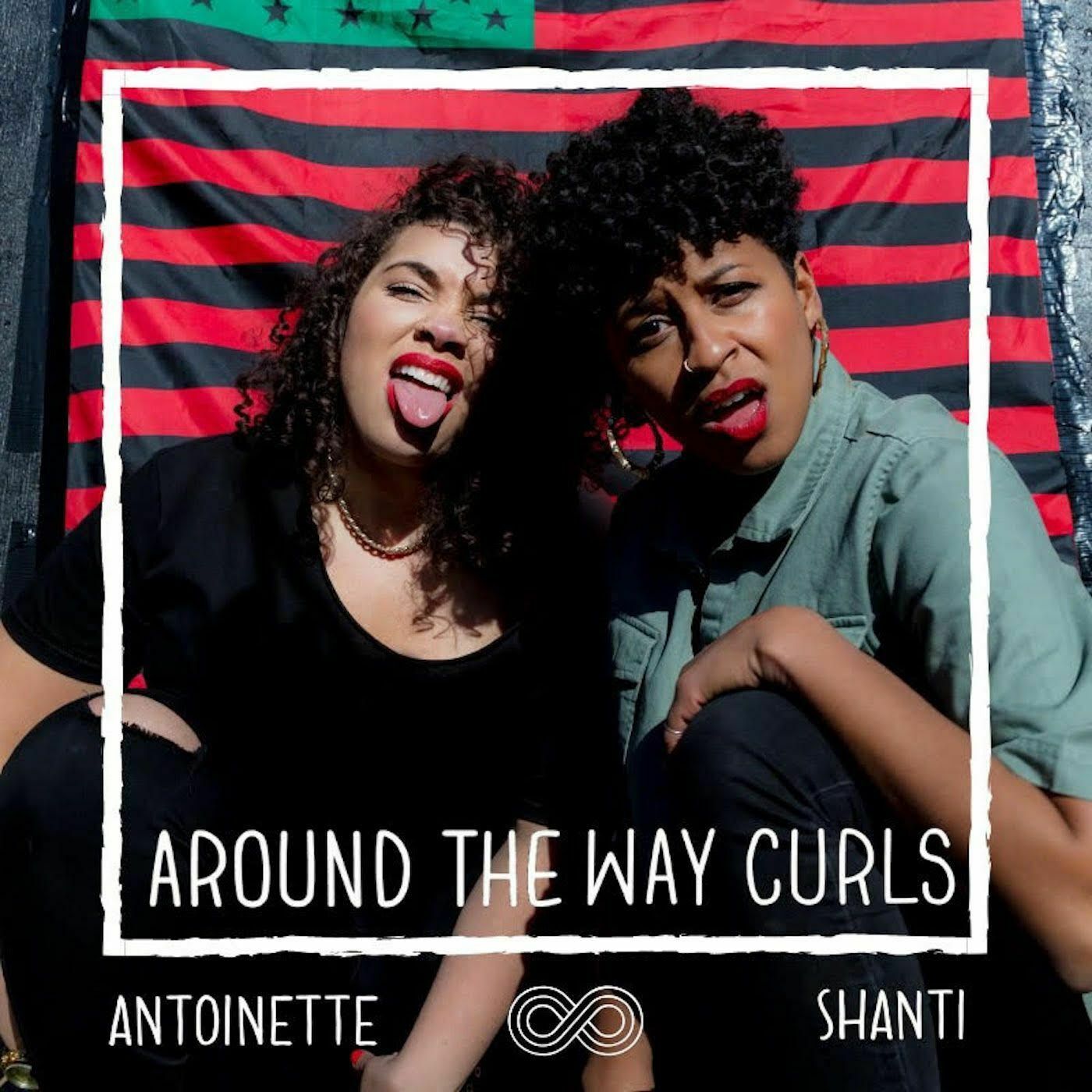
Around The Way Curls
Antoinette Lee & Shanti Mayers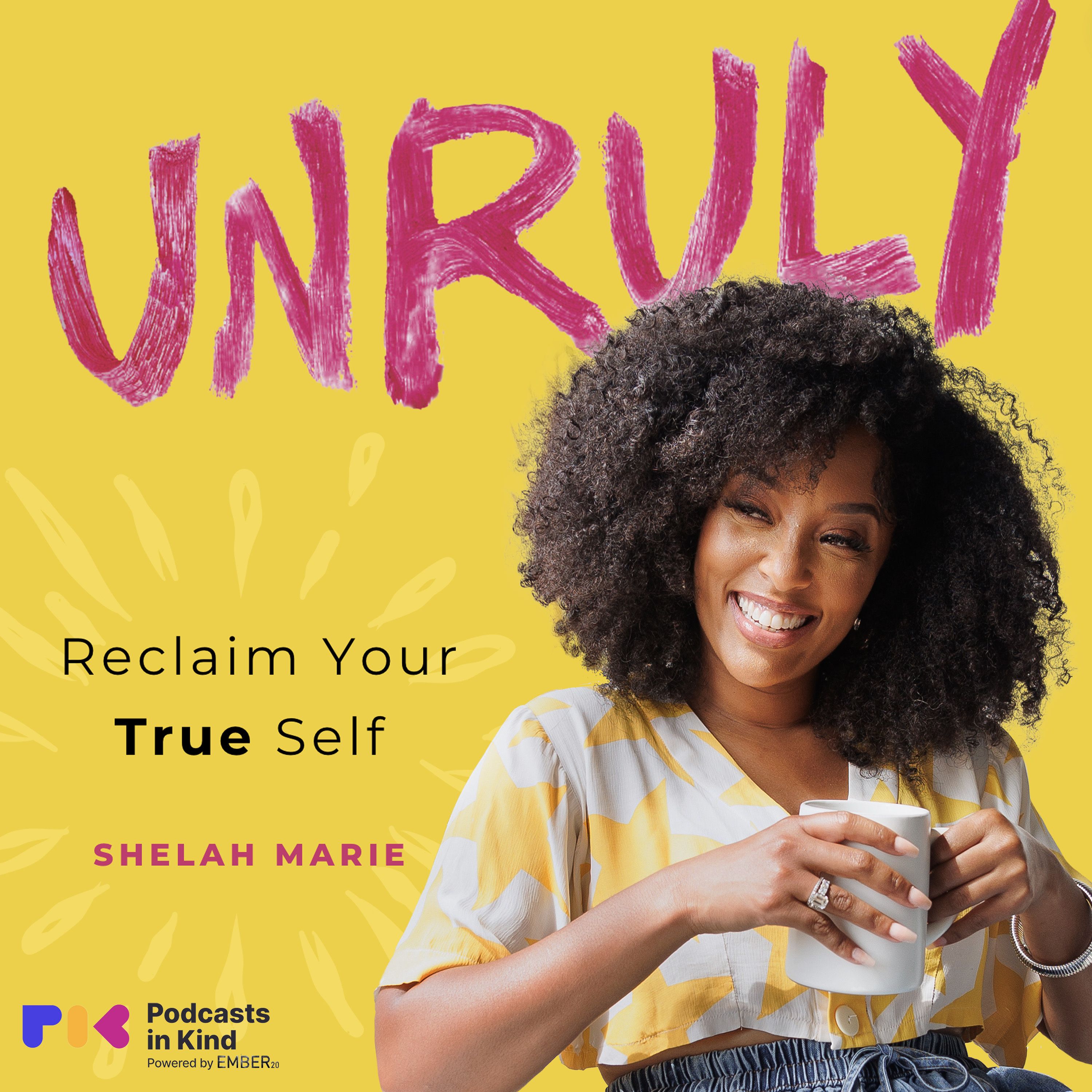
UNRULY WITH SHELAH MARIE
UNRULY WITH SHELAH MARIE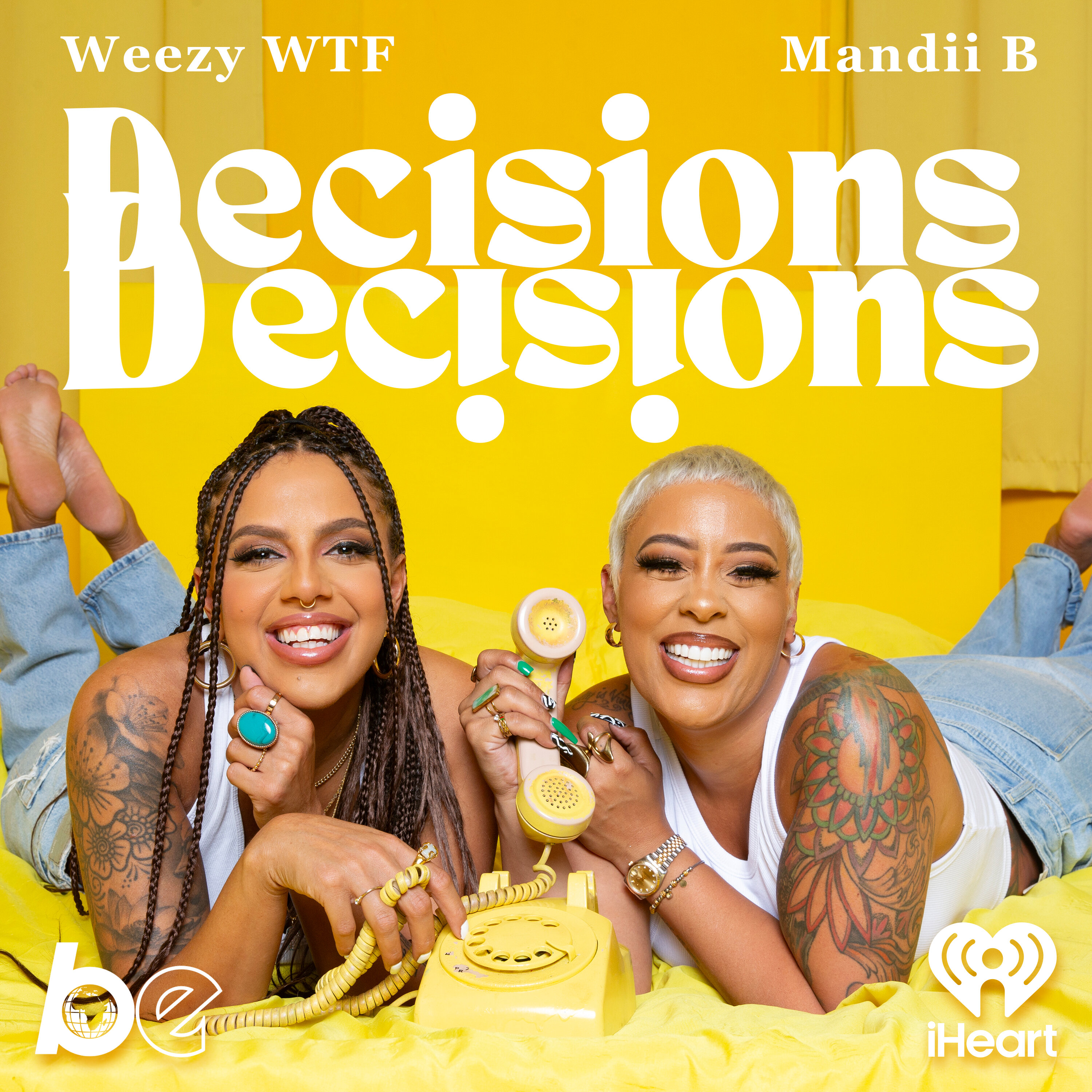
Decisions, Decisions
The Black Effect and iHeartPodcasts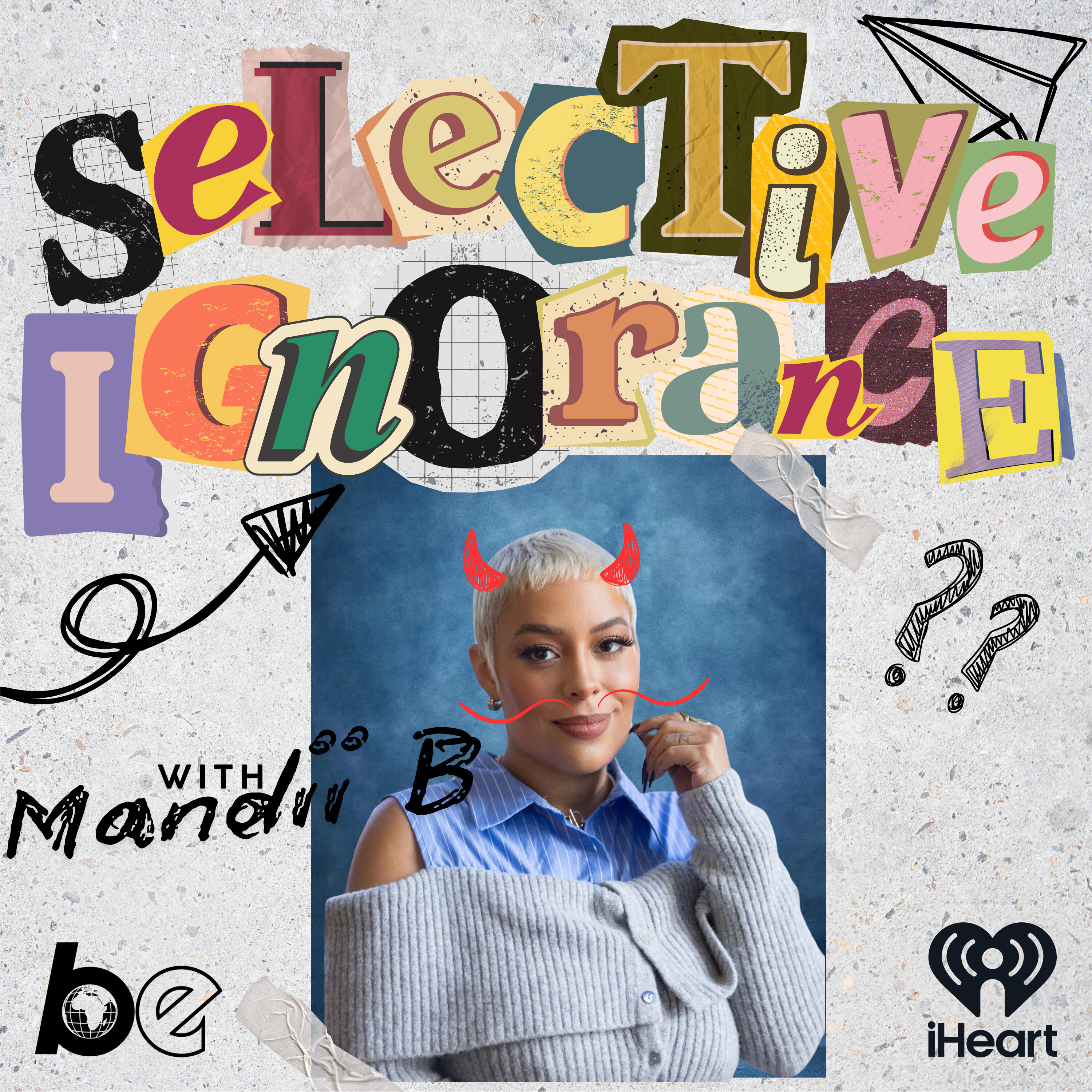
Selective Ignorance with Mandii B
The Black Effect and iHeartPodcasts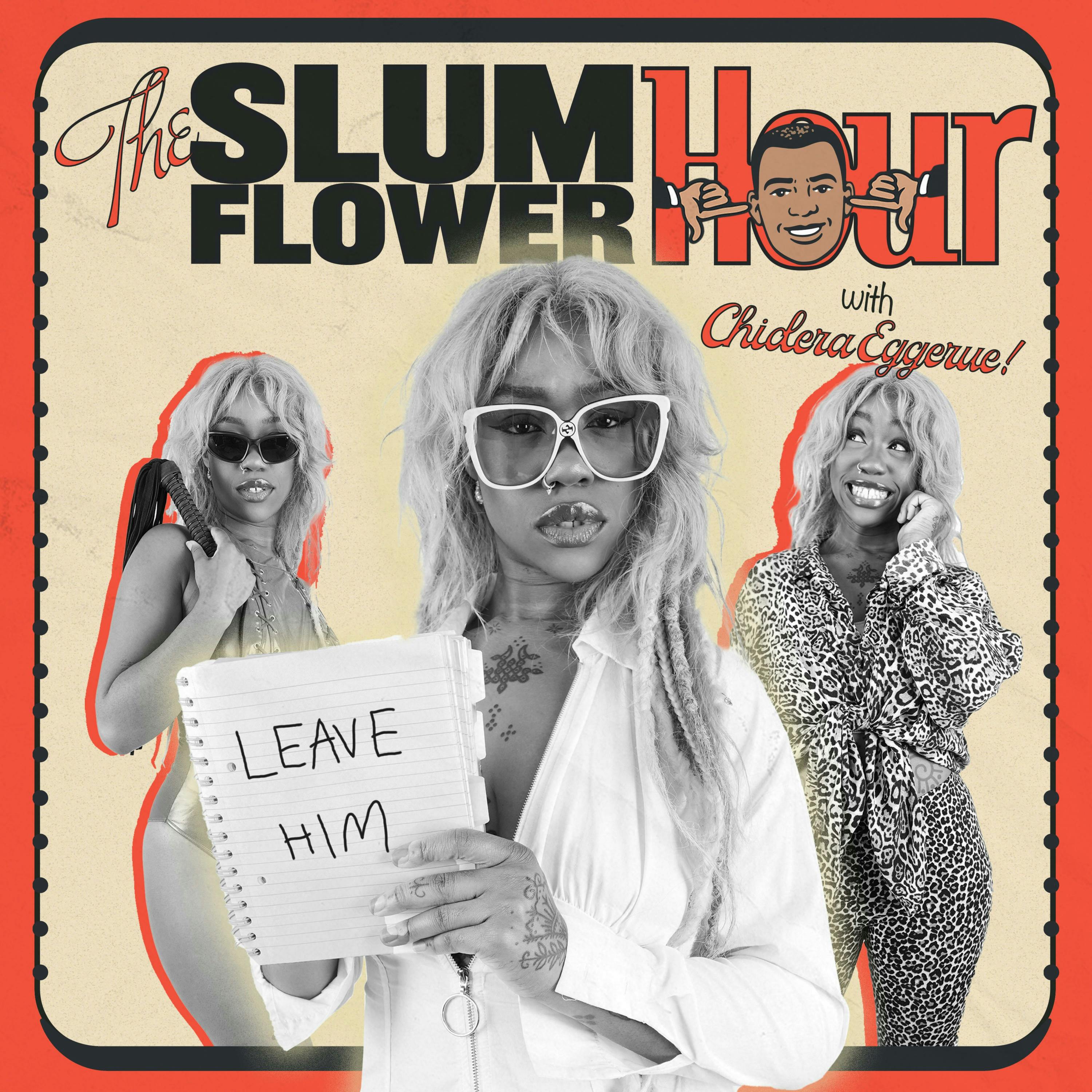
The Slumflower Hour
Chidera Eggerue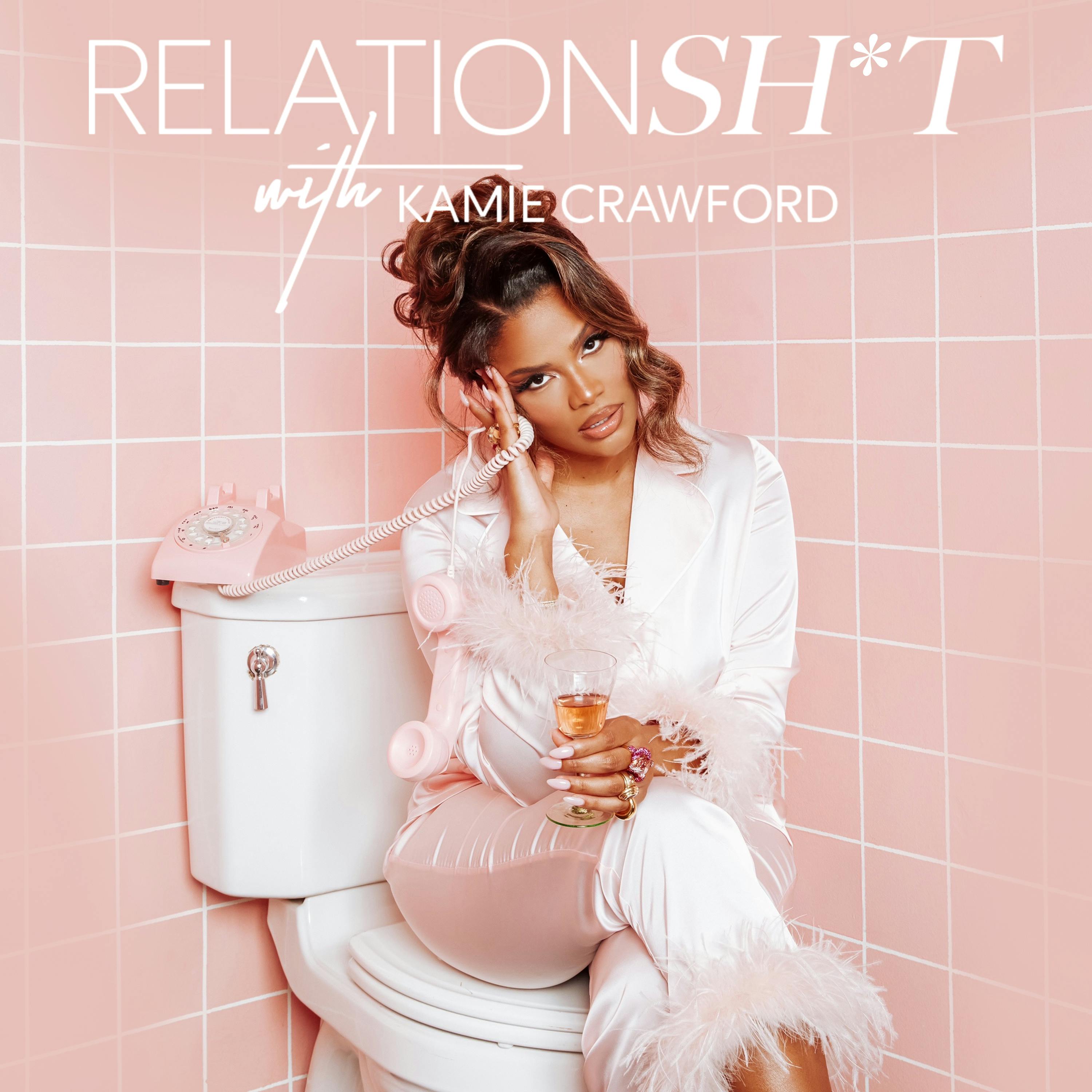
Relationsh*t with Kamie Crawford
Kamie Crawford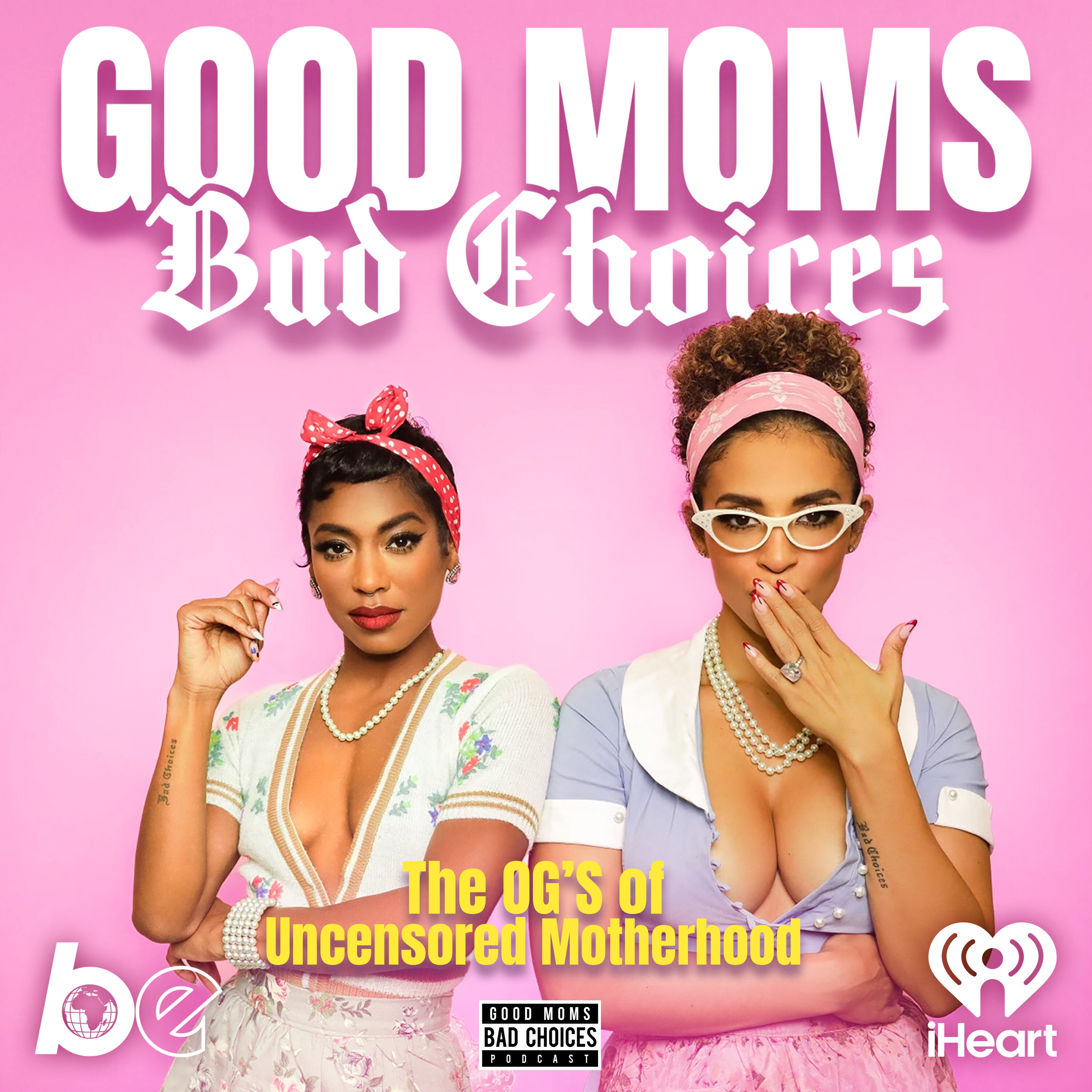
Good Moms Bad Choices
The Black Effect and iHeartPodcasts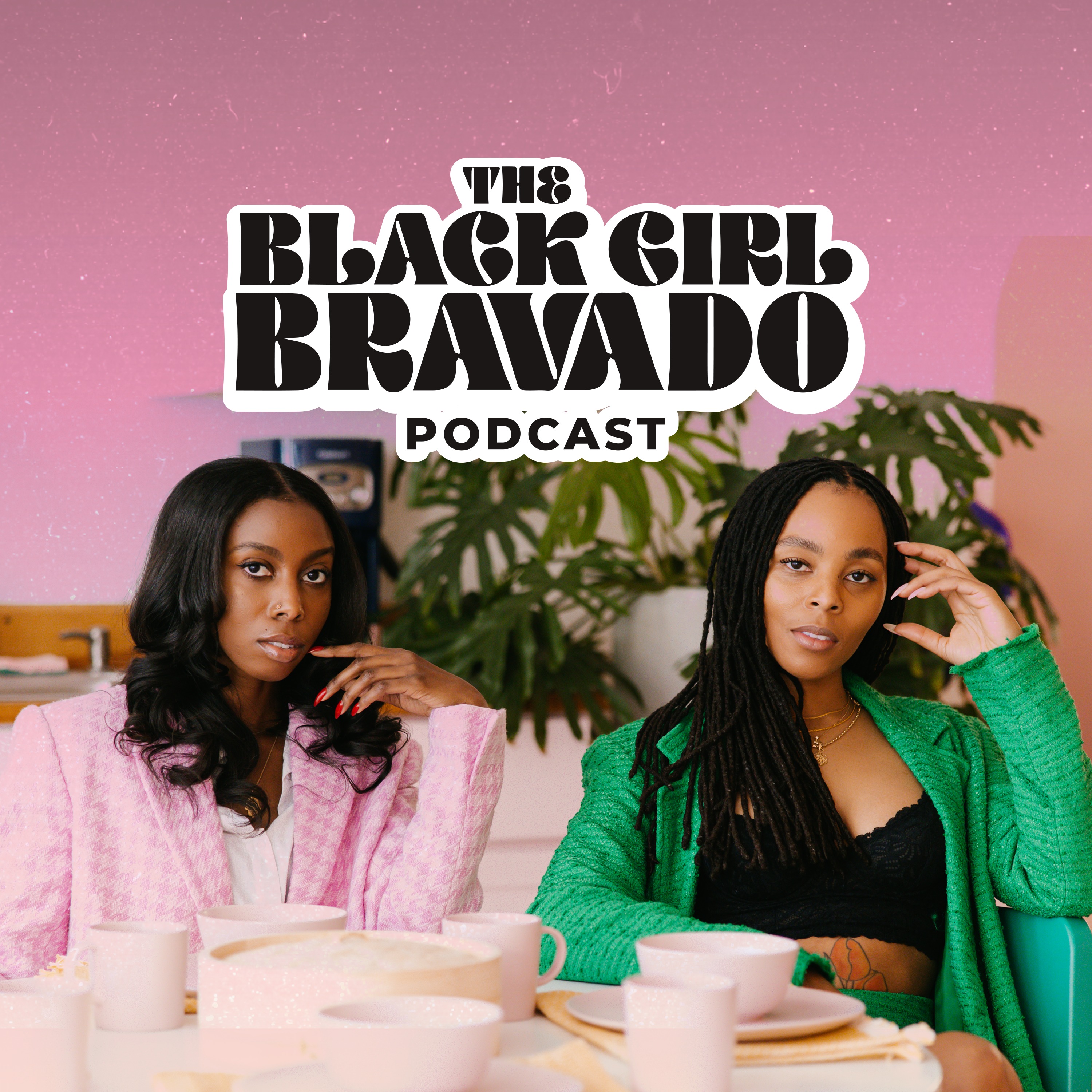
The Black Girl Bravado
Black Girl Bravado
Slay Girl Slay
Ashley Leggs
She's So Lucky
She's So Lucky
SpeakEZ Black Renaissance Podcast
Qadry Harris, M. Div.
Bobo's Void
Bobo, Donavon and MangoUpstream
Upstream
Caribbean Mystics
SpectreVision Radio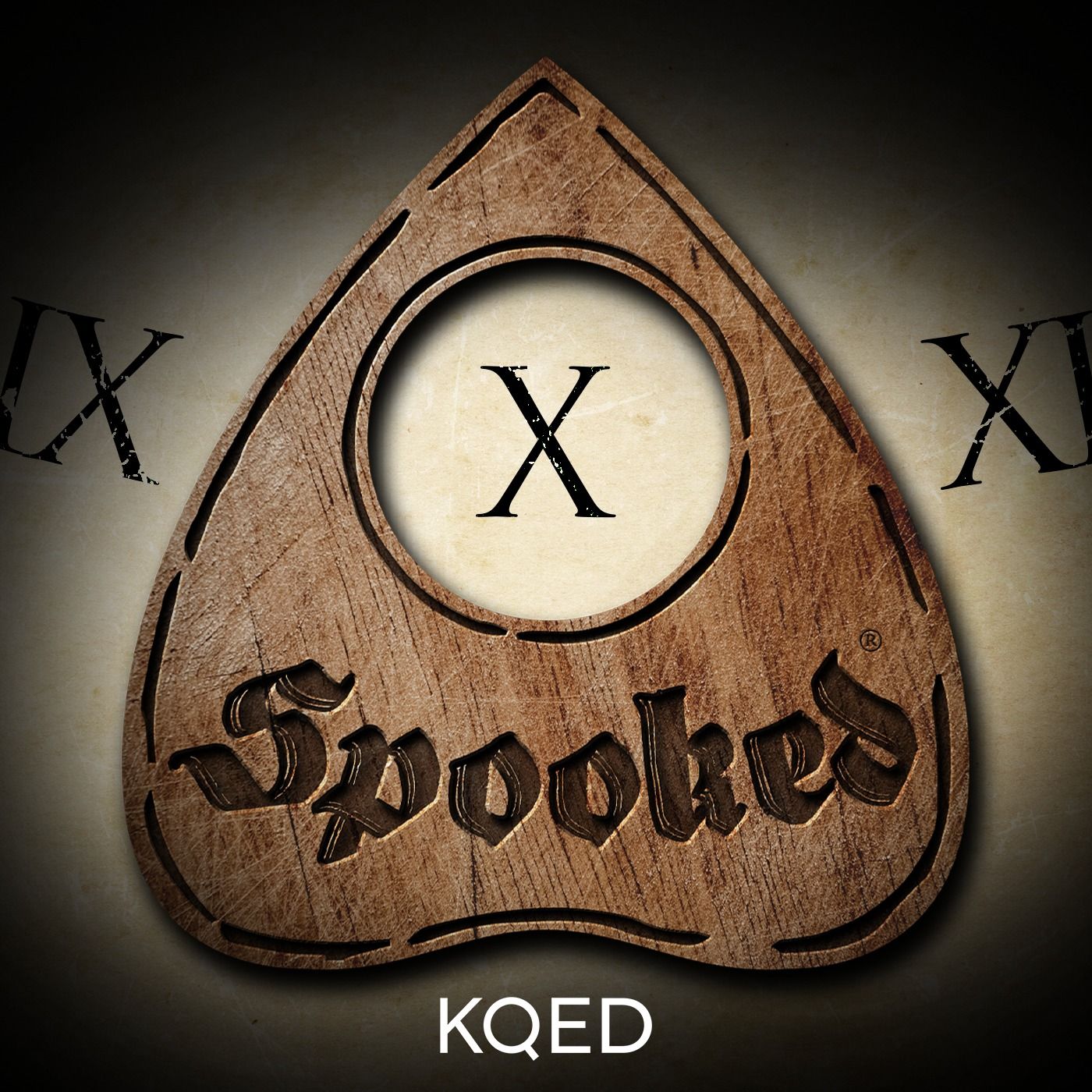
Spooked
KQED and Snap Studios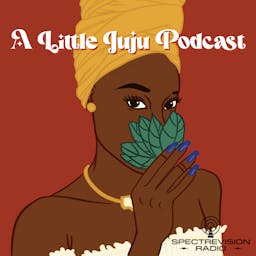
A Little Juju Podcast
SpectreVision Radio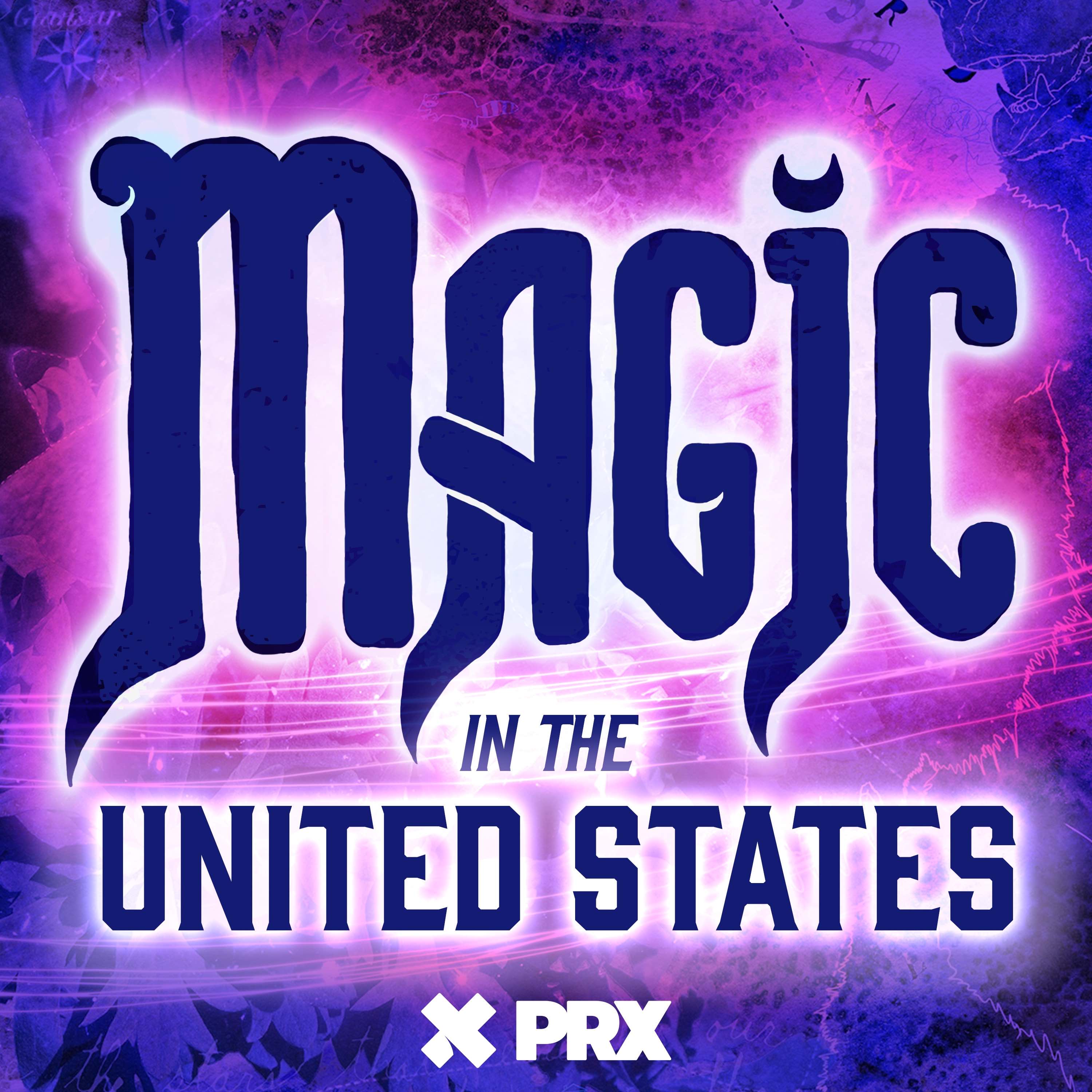
Magic in the United States
Magic in the United States
Sensual Faith Podcast with Lyvonne Briggs
Lyvonne Briggs
Our Ancestors Were Messy
Nichole Hill
CultureCon Uncut
Spotify Studios
Hold For Maintenance
Hold For Maintenance

